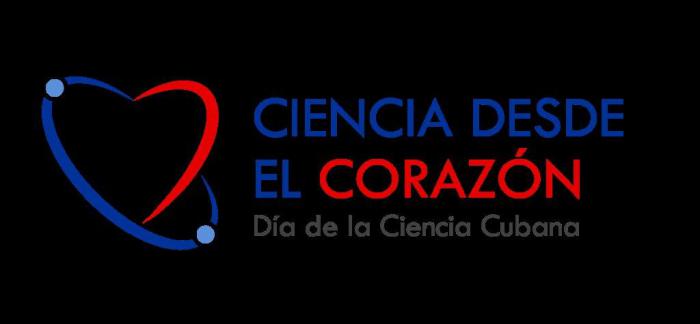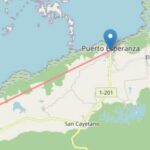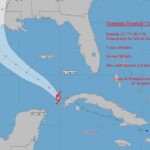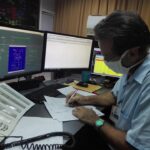The conception, design and implementation of the national action protocol for COVID-19, led by the Science Group created in the country to face the pandemic, were among the main contributions of the sector during 2020.
The studies related to the fight against the epidemic were basically focused on improving the characterization of risk groups, avoiding contagion, detecting carriers and patients early, predicting and preventing the transition to severity, increasing the effectiveness of treatment of critically ill patients, favoring recovery and avoiding consequences, psychological management of patients and their contacts, basic and laboratory research and clinical trials.
In the year just ended, the System of Science, Technology and Innovation Programs and Projects was reordered, and 14 National Science, Technology and Innovation Programs were approved, which will begin to be executed in 2021.
The relationship includes those referred to Food production and agroindustry, Aging, longevity and health, Comprehensive and sustainable energy development, Nanosciences and nanotechnologies, Telecommunications and computerization of society, Neuroscience and Neurotechnology, Climate change, adaptation and mitigation, as well as Biotechnology, pharmaceutical industry and medical technologies.
After a rigorous evaluation process, the Center for Genetic Engineering and Biotechnology (CIGB) and the National Center for Bio-preparations (BioCen), belonging to the BioCubaFarma Business Group, obtained in 2020 the category of High Technology Company.
Likewise, two technological science parks were established in Havana and Matanzas, the first in areas of the University of Informatics Sciences (UCI) and the other in the University of Matanzas.
Among the results of the national scientific work corresponding to last year appear the development of novel enzymatic catalysts for the production of fructooligosaccharides from cane sugar, in charge of the Center for Genetic Engineering and Biotechnology, Digital Television Laboratory (Institute of Research and Development of Telecommunications, Lacetel), Higher education, government and local development: practical advances and academic contributions (fruit of the joint work of several Cuban universities), and State of Conservation of Threatened Fauna: Red Books of Cuba (Ecology and Systematic Institute, Environment Agency and Institute of Marine Sciences).
They also highlight the design, development and generalization in Cuba of the first means of transport for viruses (btv) for the confirmatory diagnosis by RT-PCR OF COVID-19 (BioCen), Transfermóvil: Infrastructure for electronic commerce and payment of services to via mobile phone, using the bank’s magnetic card. (Telecommunication Company of Cuba S.A., Etecsa), Virtual researcher: computer solution for the detection of suspected cases of COVID-19. (University of Informatics Sciences, UCI), Jusvinza, an innovative drug of Cuban biotechnology, for the treatment of serious and critical patients with COVID-19 (CIGB), and the Repositioning of the monoclonal antibody Itolizumab in the treatment of patients with COVID- 19 (Center for Molecular Immunology.
Although they are not yet finished results, as they are in the research phase, it is unavoidable not to mention the four vaccine candidates against COVID-19, obtained at the Finlay Vaccine Institute and the CIGB.
There were important innovations related to the design and development of equipment for transportation and its sustainability, forklift manufacturing, automatic lighting control system in agricultural warehouses, liquid fertilizer formulations, volume, temperature and humidity control systems in silos of grains, automatic systems for fertilizer iirigation in growing houses and the creation of equipment and implements for the preparation of land, planting, cultural services, harvesting and agricultural transportation.
Other facts to highlight are the first clinical trial of allergy immunotherapy carried out in Cuba, which is published in an international journal of impact, which shows the effectiveness of the therapeutic vaccines Valergen BT (the first in the world registered for that mite) in the treatment of allergic asthma in tropical countries (BioCen achievement), and the preparation of the Climate Risk Atlas, in which the species most sensitive to climate change and their possible conservation status in future scenarios are identified (Institute of Ecology and Systematics).
Also, the implementation of two new Early Warning Systems dedicated to forecasting the circulation of the dengue virus in the country, the circulation and viability of the influenza virus and RSV Respiratory Syncytial, as well as SARS-COV-2, at the municipality level and the modernization to Doppler technology of the Casablanca meteorological radar, both from the Institute of Meteorology.
This is, without a doubt, a commendable performance in an extremely difficult year, characterized by the intensification of the United States’ tight economic blockade against the island and the impacts of the pandemic on the world and domestic economies.





